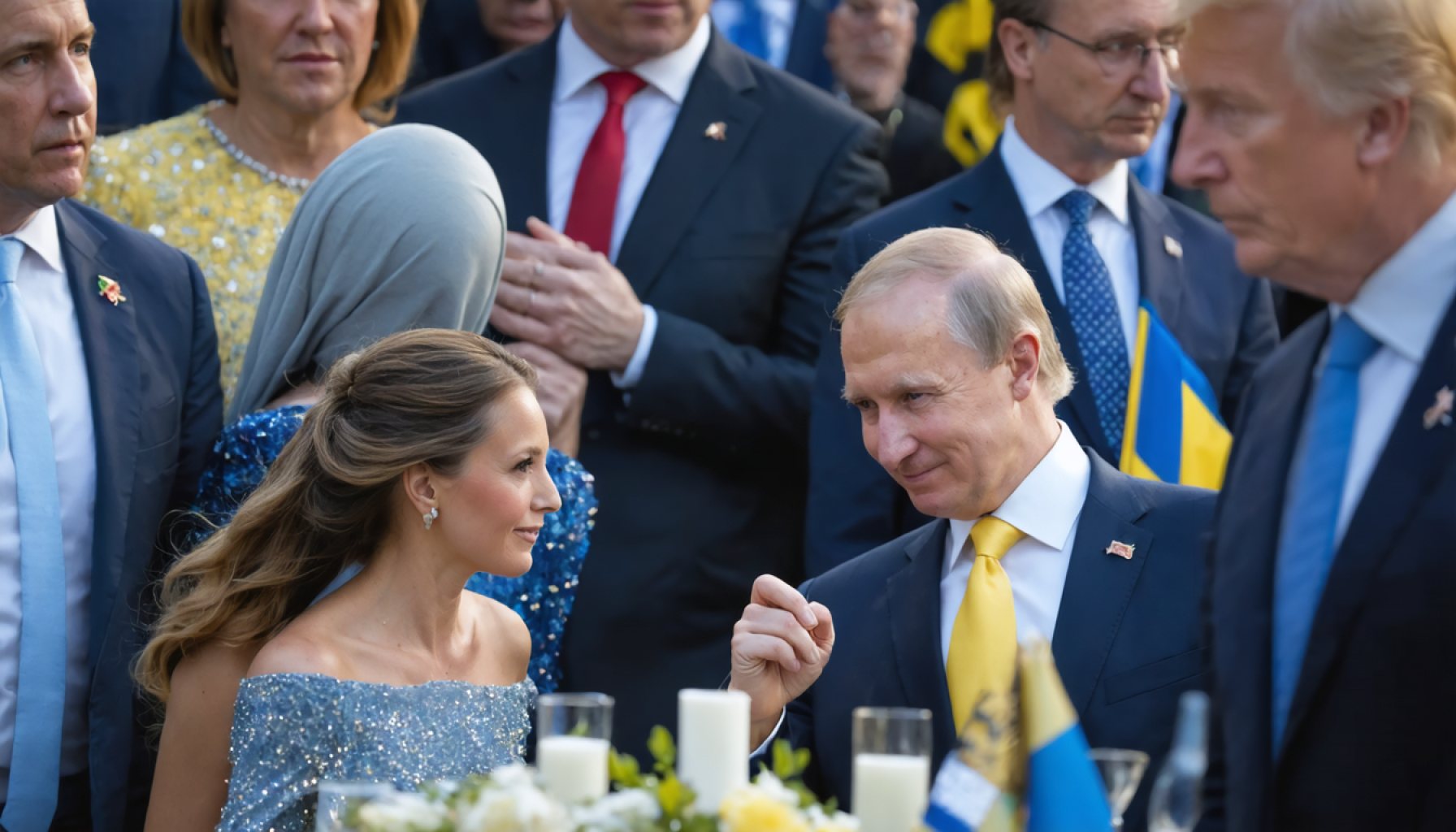- US-Russia aim to renew diplomatic ties and appoint ambassadors amidst tension.
- Plans for Ukraine peace consultations are underway, lacking specific details but prioritizing a ceasefire.
- Crimea remains undiscussed in diplomatic efforts.
- The US stresses involving Ukraine and the EU in talks, urging European defense spending.
- Russia rejects European peacekeeping forces in Ukraine, fearing NATO interference.
- The outcome of these dialogues will test if historical rifts can be bridged for peace.
Amid a swirl of uncertainty and political theatrics, US and Russian diplomats have struck a tentative chord to renew diplomatic ties and appoint ambassadors to steer this precarious relationship. This fresh diplomatic outreach aspires to navigate the fog of tension that hangs between Moscow and Washington. Yet, the path is far from smooth, layered with complexities that resemble a chessboard with myriad potential moves.
The journey doesn’t stop at friendly handshakes. There’s an ambitious blueprint to initiate consultations for a peace deal on Ukraine, with both parties eyeing frequent negotiations. Russia anticipates the United States to nominate its experts, kicking off talks that target transforming the turbulent Eastern European landscape into one of lasting tranquility. While specifics remain elusive, ensuring a permanent ceasefire sits atop the agenda, leaving the contentious Crimea issue conspicuously undiscussed.
In this strategic dance, the US asserts the necessity of involving Ukraine and the European Union in any discussions, though there’s hesitation to explicitly promise them a direct seat at the negotiation table. Asserting Europe’s role as paramount, US officials encourage their allies to bolster defense spending, applauding nations like the UK and France for their commitment to supporting Ukraine’s security.
Meanwhile, Russia firmly dismisses any notion of European peacekeeping boots on Ukrainian soil, echoing fears of NATO’s encroachment as a direct menace to Russian stability. This sentiment underscores the intricate geopolitical calculus at play.
The looming question: Can this diplomatic ballet between the US and Russia lead to genuine peace, or will the historical rifts deepen? Only time will tell if this renewed dialogue can pave the way for a harmonious geopolitical future, rooted in mutual understanding and peace beyond the past’s shadows.
Are We on the Brink of a New Global Diplomatic Era? The US-Russia Tango Unveiled
Navigating a New Diplomatic Relationship
While the source article outlines the initiatives to rejuvenate US-Russia relations, it leaves numerous crucial details for readers eager to delve deeper into what this renewed diplomatic effort entails.
How-To Steps & Life Hacks for Understanding Diplomatic Dialogues
1. Identify Core Issues: As seen with the US and Russia, pinpoint the main concerns in any diplomatic dialogue, such as military presence, geopolitical stability, and economic sanctions.
2. Stakeholder Inclusion: Determine all relevant stakeholders as the US suggests with Ukraine and the EU’s involvement. Ensuring all voices are represented leads to more sustainable agreements.
3. Set Clear Objectives: As highlighted by the US focus on a ceasefire, defining specific and measurable goals is key for progress in negotiations.
4. Regular Communication: Opt for consistent consultations, as frequent negotiations are planned, to maintain clarity and progress.
Real-World Use Cases of Diplomatic Success
Diplomatic engagements, such as the US-Iran Nuclear Deal, emphasize the importance of dialogue. Similarly, the Camp David Accords illustrated how persistent negotiation could resolve long-standing disputes.
Market Forecasts & Industry Trends
1. Defense Sector Growth: With increased calls for European defense spending, anticipate growth in the defense sector, notably in industries like aerospace and cybersecurity.
2. Energy Market Shifts: Potential energy sanctions or adaptations in response to diplomatic resolutions could impact global oil and gas markets.
Reviews & Comparisons: US vs. Russian Diplomatic Methods
– US Diplomacy: Often involves coalition-building and emphasizes multilateral agreements.
– Russian Diplomacy: Characterized by strategic alliances and focus on regional influence, especially concerning neighboring countries.
Controversies & Limitations
– Past Limitations: Diplomatic efforts between these nations have historically faced setbacks due to mistrust and differing geopolitical interests.
– Current Challenges: The Crimea issue remains a contentious point indicating potential limitations in reaching a comprehensive peace deal.
Features, Specs & Pricing: Diplomatic Initiatives
– Security Guarantees: Central to negotiation will be security assurances likely involving investment in military infrastructure and technological defense mechanisms.
– Economic Incentives: Economic packages could be proposed as part of confidence-building measures.
Security & Sustainability
– Long-term Peace: Securing peace in Eastern Europe requires commitments to sustainability through socio-economic development plans and security accords.
Insights & Predictions
Experts speculate that if these diplomatic talks succeed, we might witness a shift in global alliances and a reduction in military tensions. However, ongoing scrutiny and strategic patience will be essential.
Pros & Cons Overview
Pros:
– Potential for lasting peace in Eastern Europe.
– Economic stability and reduced military expenditures.
– Broadened international alliances and cooperation frameworks.
Cons:
– The potential exclusion of key stakeholders could hinder trust.
– Historical mistrust may delay or derail progress.
– Unresolved issues like Crimea could reignite tensions.
Actionable Recommendations
– Stay Informed: Regularly update oneself on geopolitical developments.
– Diversify Understanding: Engage with various news outlets and expert analyses.
– Advocate for Peace: Support diplomatic solutions through advocacy in political forums.
For more information on current geopolitical trends, visit Foreign Affairs or CSIS.
In conclusion, the journey toward a diplomatic understanding is fraught with challenges but presents an opportunity for reshaping international relations, fostering peace, and enhancing global security.
